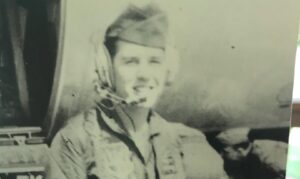Not long ago, I went to the funeral of a man I did not know. I had never even seen him or heard him speak a word. Saddest of all, I had never heard the talented musician play a single bluegrass note on his mandolin or banjo.
His son, Kris, a preacher, has meant a lot to Tink and me. Like his father, at least according to those who spoke at the funeral, his son is quiet and reserved in person. If two words will answer the question, he sees no need to use a dozen.
He is the epitome of an Appalachian man who is steady, God-fearing, and a hard-working family man. He’s the kind of man we need more of in these days of trouble and uncertainty.
When the mandolin player’s son steps behind a pulpit, though, the full abundance of the Holy Ghost rains down with a transformation that is astounding. He comes alive with a vigor as he quotes King James scriptures and explains them in depth with clarity. He uses stories and anecdotes to illustrate with wit and wisdom. The personality of the admirable man inside the pulpit is quite different from the sweet-mannered one outside the pulpit.
Tink was out of town so my sister, Louise, and I went to the funeral. In the way that people are often connected in the mountains, the preacher is married to our cousin. Her grandmother and Mama were sisters. Death had come sudden, nary a warning that hours were dwindling and that, of course, left the family reeling with the kind of sorrow that is the hardest of all the sorrows wrought by a man’s end of time.
So, there we sat at a funeral of a man we did not know but by the time the funeral ended, we would know Doyle Butler well. I would leave wishing that gentle, kind man had been my friend. The preacher handling the service had known him for 40 years, at least.
“I never once saw him raise his voice in anger. I never knowed him to speak a word of unkindness of anyone. He was one of the finest people that ever stepped foot on this earth. If you needed something, you could count on him.”
Preachers, of course, are suppose to speak kindly of those whose caskets they stand over. But it wasn’t just the preacher. When he asked if anyone else had anything to say, several people filed to the pulpit and spoke of the power of the gentle, kind man who had touched their lives. A couple broke down and couldn’t speak further.
To the right of the pulpit was the bluegrass group that he played with regularly. There was a guitar player, a stand-up bass player, and a banjo player. In the center of the group was an empty chair: the mandolin sat by itself, mourning the loss of its friend who would play it no more. It was a powerful symbol as they played and sang somber mountain songs in tribute to a man they loved.
It was impossible to sit in that congregation and not be terrifically moved. “This,” I thought to myself, “is how I want to eulogized, how I want to be mourned.”
Lately, a couple of people have died who were so mean and ornery that I thought, “Good riddance.” But the loss of a man who was dignified, solid, kind and rooted in family and music is profoundly sad. I wish we could keep more of the good ones and lose more of the mean ones.
When we filed out of the chapel, I walked over to his son, the one who has meant so much to us and is another gift this man left behind.
“Your daddy’s funeral preached to me today,” I said. “I want to be the kind of person he was.”
And I wish I could play the mandolin, too.
[Ronda Rich is the best-selling author of “Mark My Words, A Memoir of Mama.” Visit www.rondarich.com to sign up for her free weekly newsletter.]









Leave a Comment
You must be logged in to post a comment.